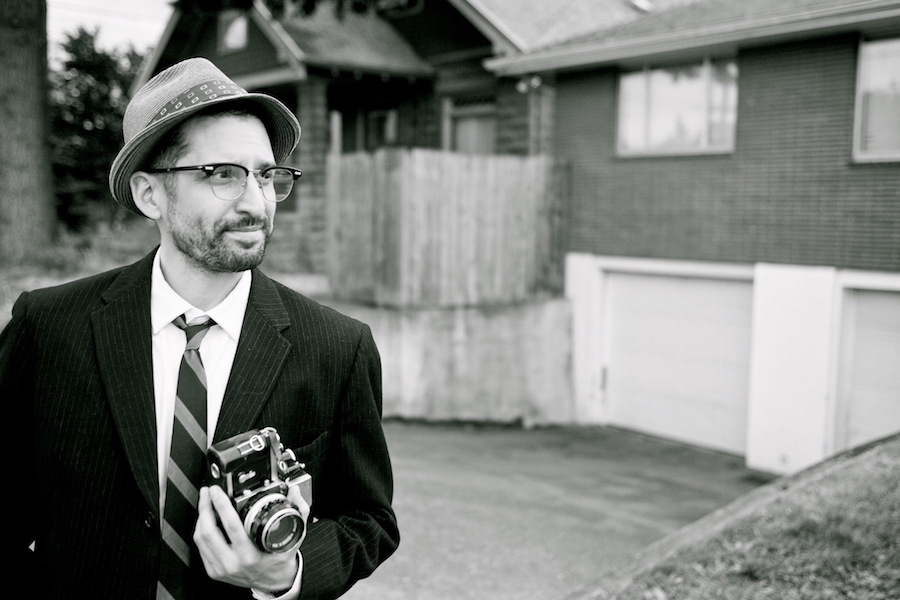The field offers higher pay and similar work.
Over his career in investigative journalism, Cornelius Swart has reinvented himself several times. He developed online news site GoLocalPDX, published the Portland Sentinel and produced two documentaries on gentrification in Northeast Portland.
Now he’s Cornelius Swart, private eye.
In the wake of massive layoffs at news organizations struggling to adapt to the digital landscape, it’s easy to see why investigative journalists are fleeing to private investigation. The skill sets and day-to-day work aren’t all that different, but private eyes are better compensated and have more opportunities.
The Bureau of Labor Statistics projects that employment for private investigators will grow by 11% percent in the next decade, while the journalism job market will shrink by 9%. Private eyes earn a median salary of around $50,000, a healthy raise from the average reporter’s salary of just over $40,000.
“A lot of folks go into public relations and a lot of others see this avenue,” Swart says. “I think it’s more fun because that investigative chase is still there.”
“A lot of folks go into public relations and a lot of others see this avenue. I think it’s more fun because that investigative chase is still there.”
—Cornelius Swart, private investigator
Most private eyes still come from law enforcement, says president of the Oregon Association of Licensed Investigators Patrick Higgins, but he’s seen more applicants from the private sector, including journalism, in the past few years.
There are 772 licensed private investigators in Oregon, a slight uptick from previous years, according to records kept with the state agency that licenses private eyes. There’s been a surge in applications for new private security licenses in the past couple of years. From 2007 to 2017, however, the number of new private investigator applicants decreased by half.
Lawsuits, fraud, other crimes, and “interpersonal mistrust” (aka cheating spouses) will continue to fuel the market for private investigators, the Bureau of Labor Statistics notes. The biggest subfield for growth is legal services. Private investigators will also continue to aid human resources professionals, as online background checks are not always sufficient.
People seeking a private investigator license must log 1,500 hours of work in a related profession. Investigative journalism counts, along with law and law enforcement. After that, private eye hopefuls must sign a code of ethics, provide letters of reference and score a solid B+ on a multiple choice test.
For the first six months on the job, Higgins says, newbies might work for a “PI mill,” that takes cases and farms them out to a network of investigators for relatively low pay. After that most investigators strike out on their own. The market can be competitive.
“There’s a good number of folks out there,” Swart says. “There’s price competition.”
Private investigator job outlook
Median salary: $50,000
Ten-year job growth: 11%
While technology has reshaped the labor market in a number of other industries, Higgins says not much has changed for investigators in the more than two decades he’s spent in the field. He takes a skeptical view of online research and modern recording equipment. “If you can’t actually pound the street you really aren’t doing the case successfully,” he says.
That’s something that came naturally to Swart from his work in journalism. As a private investigator, however, he also gained new powers. He could search state databases for the names and contact information of thousands of people.
Investigators also need to stay sharp. Higgins spent some years doing high-risk surveillance and threat analysis, following around patients with a grudge against their doctor, or a disgruntled employee. Unlike the police, it was often just him and another investigator—no badge, no support from a department.
“You never know which way it’s going to go,” Higgins says. “It isn’t like being a cop where you’ve got immediate backup.”
Most of the time the work is less adrenaline-pumping. Private eyes gather information for court cases, help locate lost people and investigate insurance claims. Swart takes on three or four cases a month. He often subcontracts for bigger firms, contributing pieces to a larger investigation through surveillance, interviewing witnesses or other tasks.
Although they aren’t trained in law enforcement, Swart says journalists make great private investigators because they can take the facts from witness interviews and research, and turn those into a persuasive story. No one might read the whole story except a single lawyer, but it still has to be a page-turner.
“Attorneys need to tell compelling stories to a jury,” Swart says. “We know how to pull the story out of the facts.”
To subscribe to Oregon Business, click here.





